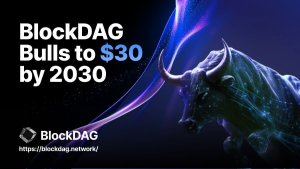Creating a Revenue-Generating Online Brokerage: The Quest for Leads
As noted in an article I penned back in 2020, creating a successful brokerage is no easy feat. Fast forward to 2023, and the difficulties have only steepened as competition has continued to intensify even further.

It would seem every market participant is determined to secure new clients, often at a higher cost than the resulting revenue. In an ultra-competitive environment such as retail broking, emphasizing the significance of accurate markups, transparent partner conditions, and best execution is crucial. Thus, mastering the tricky balance between acquisition costs and total client revenue stands out as being of the utmost importance for any aspiring broker.
Now, let’s delve into the more intriguing aspect of lead generation. Analogous to infants, we require a source for leads. Generally, high-quality leads equate to higher revenue further down the track. Another interesting factor is geography. Particular regions observe larger initial deposits, commonly referred to as First Time Deposits (FTDs) than others. Additionally, some regions tend to boast clients with elevated Lifetime Value (LTV) who exhibit stronger loyalty to the broker when trading.
As a guiding principle, prioritize revenue-generating projects while ensuring compliance with regulations. Neglecting these rules could jeopardize your business viability.
Drawing from my own experience, I’ve identified four revenue generation models that significantly impact online brokers with each model requiring a dedicated stakeholder.
Introducing the Introducing Broker (IB) Revenue Model:
The first model revolves around IBs. It’s a straightforward arrangement: individuals who introduce clients to your platform receive a share of the proceeds, either from spreads, commissions, or in some isolated instances, from the client’s loss—though this latter option is generally not recommended for several reasons. The pressing question is: How does one locate IBs? What’s the secret formula?
Depending on the countries where your entities operate, you should consider attending or hosting conferences. Analyse the presence of prop trading firms, funds, portfolio managers, trading educators, and any other companies that want trade or invest.
Seek out venues bustling with trades. Identify influential figures who can drive traffic, similar to social trading leaders—those whose decisions sway the actions of others. In many cases, you may also receive direct referrals, which is why building a strong brand presence is crucial.
While this model can yield significant success given the right compensation structure, it can be labour-intensive. You may need to actively seek out IBs at conferences and events, perhaps even on platforms like LinkedIn.
The Affiliate Revenue Model:
Another popular model centres around affiliates. Your company forms a partnership with an entity possessing substantial online traffic, some of which may be inclined to trade or invest (similar traffic to your websites). You then supply them with display ads, or sponsor content through backlinks connected to attractive landing pages. Occasionally, you might acquire traffic directly to your site, if the affiliate partner can arrange that.
Executing the affiliate model correctly hinges on precise Terms and Conditions; otherwise, the traffic you receive might exploit arbitrage, leading to financial loss rather than gain.
The Media Buying Revenue Model:
Media buying requires no secret formula; it entails an in-depth understanding of your Google and Facebook traffic. Mastery over keyword acquisition, machine learning-driven strategies, and crafting a high-conversion landing page are imperative. Your product should seamlessly perform its magic, maximizing auto-conversions. Developing client maps, comprehending where clients lose interest and why, and motivating them to trade are all paramount.
An auto-conversion model compels ongoing innovation within the company. A seamless onboarding process, intuitive and captivating trading or investment experiences, and sustained client engagement should be the ultimate goals. While it may sound like a science, the intricate art of successful media buying demands precision; failing to get it right might result in squandering leads from Google and Facebook, or failing to convert them effectively due to delays, rendering them “cold” leads.
The Traditional Sales Revenue Model:
The final model, though not to be disregarded, is the sales approach. Each sales representative undertakes the task of lead generation using traditional methods. These include scouring the Yellow Pages, attending conferences, events, parties, and even engaging in activities like racing cars or golf events.

However, brokers often need to provide support and assistance. They might sponsor events, football matches or teams, gala dinners, or luxurious experiences, recognizing that trading is rooted in disposable income, and greater financial capability benefits the broker.
Consequently, Relationship Managers (sales personnel) obtain leads and entice them to explore trading and investment opportunities in our ever-changing markets.
The subject matter and the content of this article are solely the views of the author. FinanceFeeds does not bear any legal responsibility for the content of this article and they do not reflect the viewpoint of FinanceFeeds or its editorial staff.









